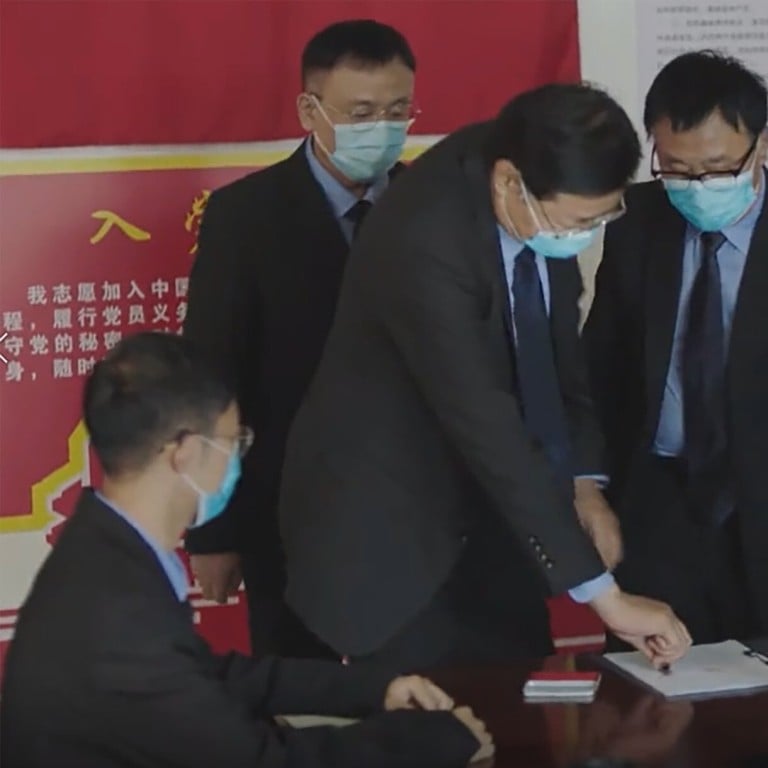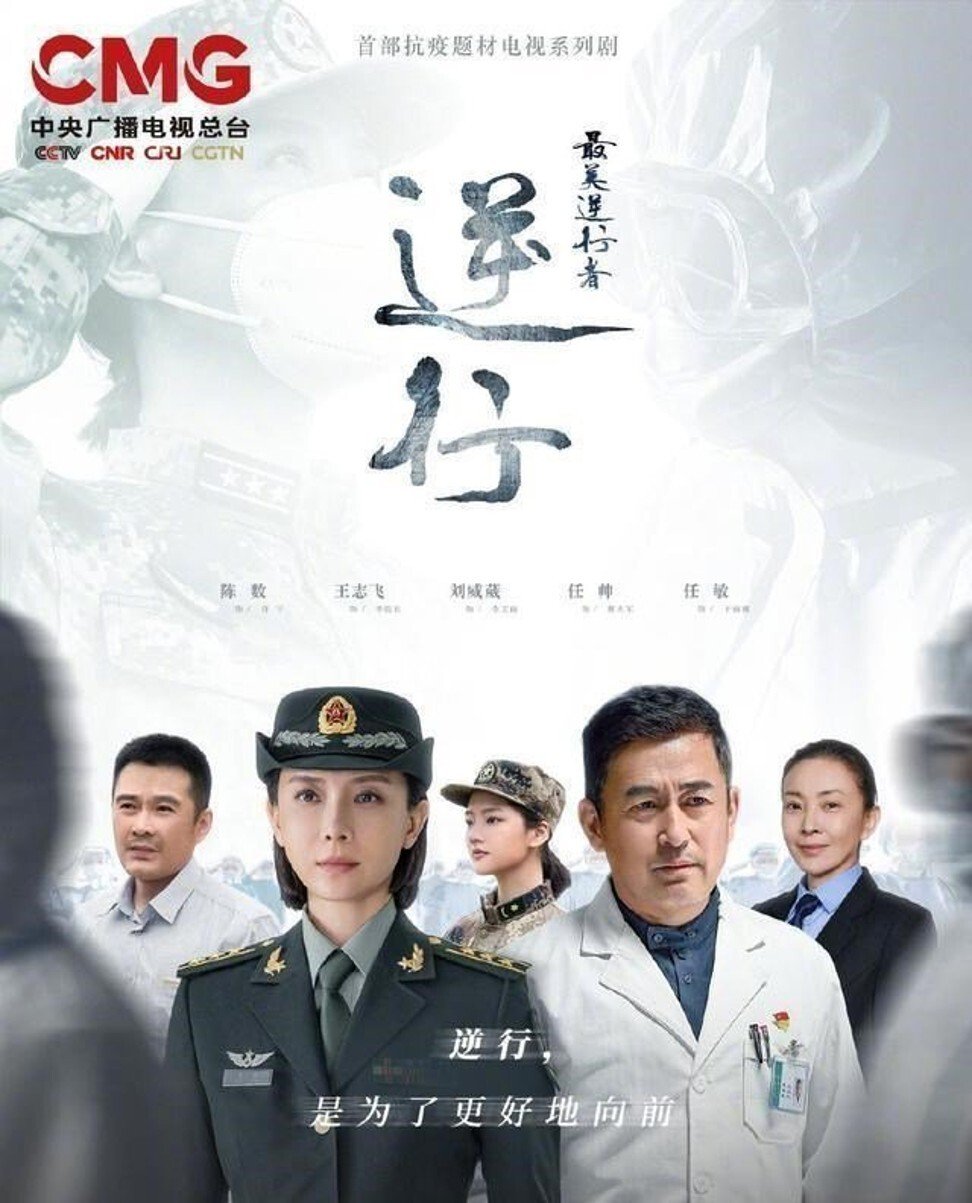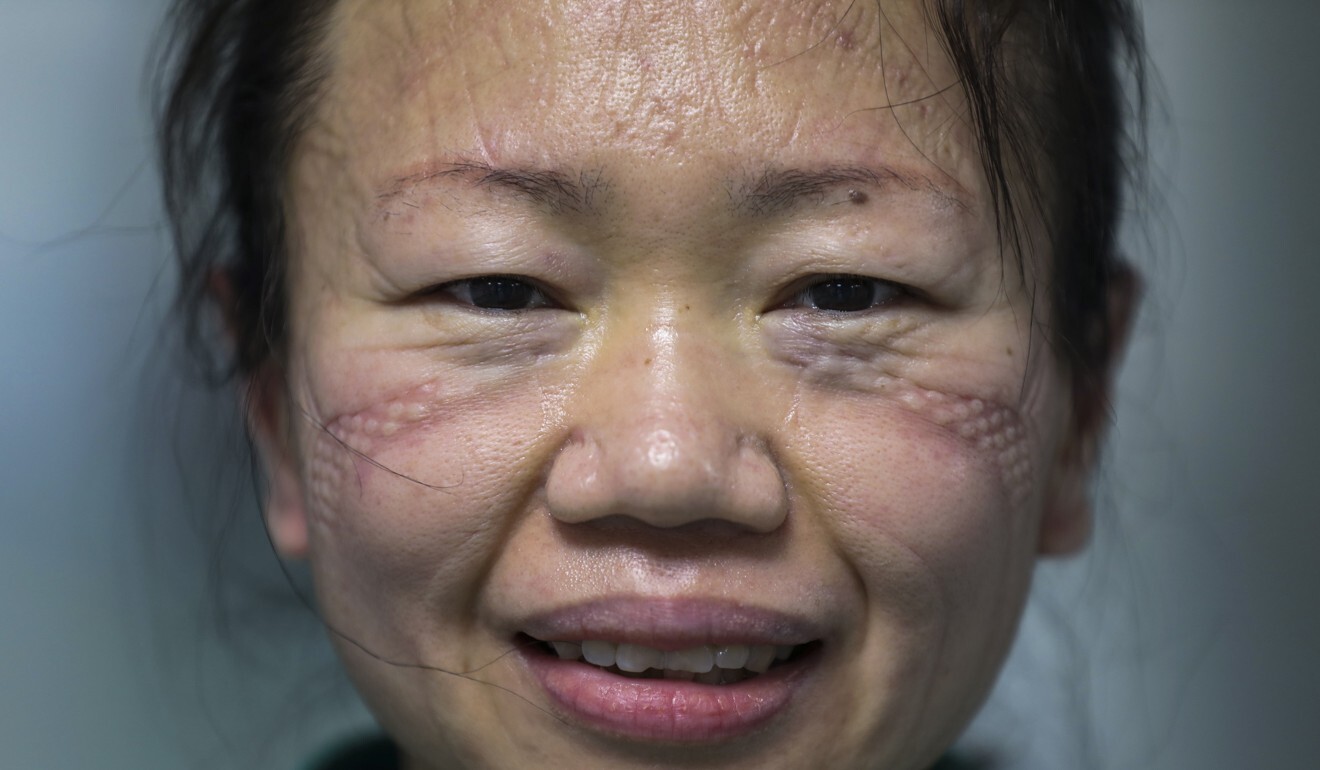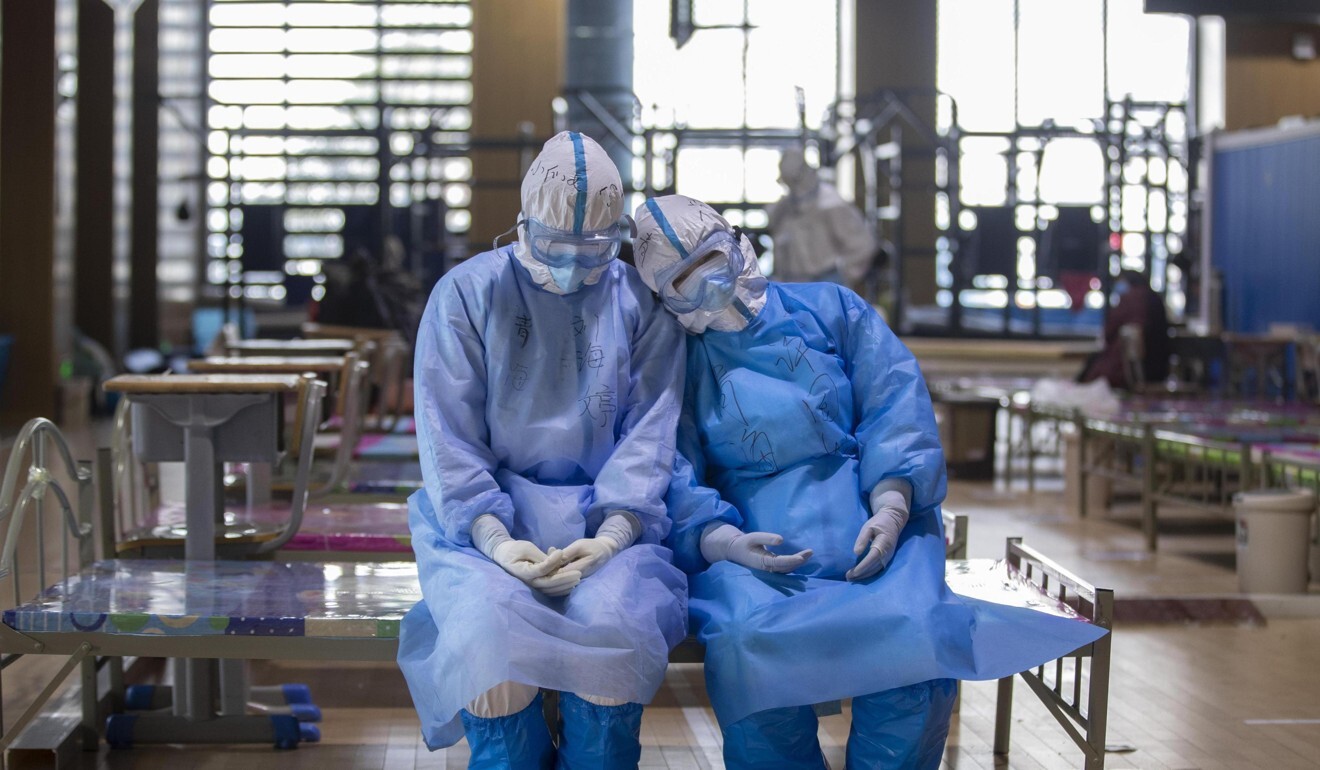
‘Sexist’ drama about China’s coronavirus heroes slammed for overlooking women
- Programme on state broadcaster CCTV criticised for portraying women as reluctant to help out and nurses as being more interested in gossiping about men doctors
- Frontline medical workers say the show set in Wuhan does not reflect the reality of the fight against Covid-19
Zhang Mei, a nurse from Hubei, the worst affected province, said she had worked for three months straight without a day off and, along with many of her colleagues, had not gone home for months for fear of infecting their families.
She said that the vast majority of nurses at her hospital in the city of Huanggang were women, but after watching the first episode of the programme on state broadcaster CCTV on Thursday night they felt that women’s contributions had largely been ignored.
Couple die in theatre tragedy at show dedicated to Wuhan medical workers
A group of men drivers immediately stand up, prompting the boss to ask for women volunteers.
One woman stands up, and says: “I really couldn’t, my family is waiting for me to spend Lunar New Year with them.”
Another woman then tries to volunteer, only for her colleagues to tug at her sleeve and try to stop her.
But Zhang said this did not reflect reality because every woman working at her hospital had joined the fight against the disease. “Back in our hospital, there were only a few male nurses, 95 per cent of us are women,” she added.

“It was an intense period,” she said. “We had a shortage of protective gear. When we didn’t work directly in contact with confirmed patients, we only wore masks, not even protective suits.”
The following episodes show nurses gossiping about a handsome male doctor without wearing their masks and a female doctor being told “you’re a woman, stand aside and just assist us”. Other scenes concentrate on a “family war” between a woman and her daughter-in-law during the epidemic.
While the drama, called Heroes in Harm’s Way, has been widely panned online, state media has been full of praise.
‘I can never be happy again’: grieving Wuhan families say China is blocking coronavirus lawsuits
“The show portrayed the regular little people in the epidemic, praising their tenacity and boldness in the face of death,” a commentary published in Communist Party mouthpiece People’s Daily said.
But angry rebuttals of some of the show’s scenes quickly went viral online as social media users posted links to news conferences where officials said more than two-thirds of the 40,000 medical workers dispatched to Hubei from other provinces were women.
Hou Hongbin, a Guangzhou-based feminist writer, said people were angry because it had hugely downplayed the contributions of women and portrayed them as unprofessional. She also said the focus on family conflicts ignored the united front fighting the pandemic.

“Nothing it showed was based on reality, which makes any Chinese with conscience or any memory of the pandemic angry,” Hou said.
Other people recounted stories of women who worked extra shifts as bus drivers, helped build hospitals or worked 12-hour shifts on helplines.
Official media reports during the pandemic have previously been criticised for sexism. Some focused on stories about women medical workers shaving their heads, while others only showed male doctors, even when there were more women in the hospital.
“I believe this is not the propaganda effects the show was aiming for, but these government bureaus have been out of touch with the public and were slow to be in sync with public opinion,” Hou said.

She said that feminism in China had been going backwards to some degree in recent years. In the 1980s and 1990s the official rhetoric was “women hold up half the sky”.
But as China’s economic growth has slowed in recent years, the government has focused more on traditional values, and stressed the need for women to be family-oriented in the hope of boosting population growth.
“But the women today have their own values,” Hou said. “We can see a broader world and we will not be satisfied with being a traditional stay-at-home woman. Because so many women are rallying against the show … we can see how out of date such traditional and backwards values are.”

.jpg?itok=H5_PTCSf&v=1700020945)